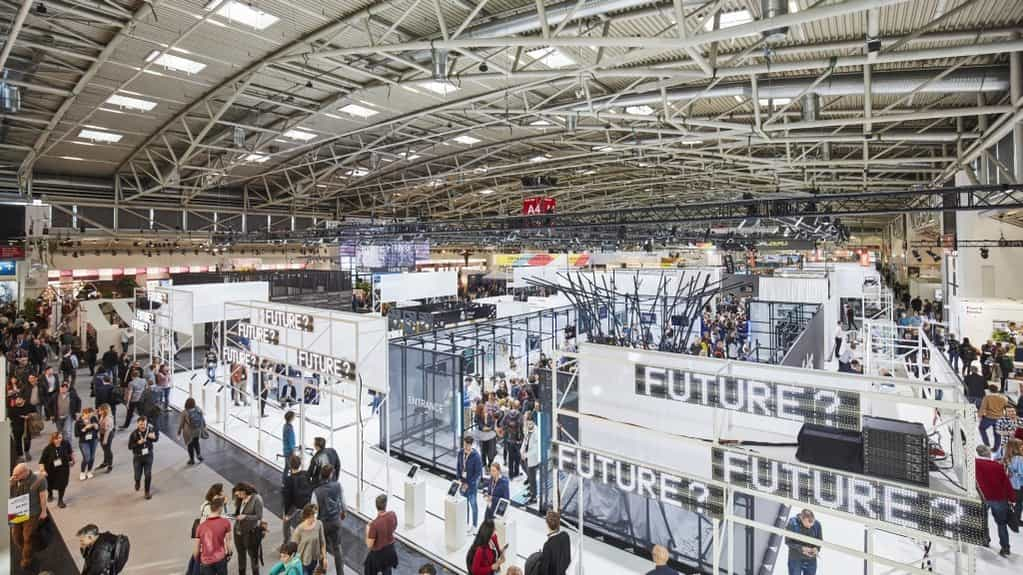Interview with ISPO Digitize: Questions for Tobias Gröber, Executive Director Business Unit Consumer Goods
The premiere of the ISPO Digitize Summit lies just ahead: on 28th / 29th June, the new format with an exciting programme will be launched at the Munich Congress

The premiere of the ISPO Digitize Summit lies just ahead: on 28th / 29th June, the new format with an exciting programme will be launched at the Munich Congress Centre, the ICM. The summit will be a platform concerning the future of the sports industry – the bar is being set pretty high. In an exclusive interview, Tobias Gröber, Executive Director Business Unit Consumer Goods, tells us why that’s the logical consequence of many years of development and why the Munich-based ISPO has a lot to say about digital transformation.

ECD: Mr Gröber, on the ISPO Digitize website, you welcome people to the future of sports business – so how does the future of this industry look?
Tobias Gröber: Like in many other industries, the future of commerce in the sports segment is going to be different from what we know now. It’s a matter of new approaches to customer loyalty, being open for new technologies and, of course, the intelligent connection of all sales strategies we as a brand or retailer have available. We could create an entire event merely on this question: “How do I create an experience in bricks-and-mortar retail which extends beyond a product and which the customer can take everywhere?”
At your main event, the ISPO Munich, innovations and their presentation play a major role. How are you planning to transfer this “display of novelty” to the summit?
Very simply: By placing less emphasis on presenting new products from the 3,000 exhibitors, but rather on the digital user experience and exchanging information on location. In its content, the summit has a conference approach with presentations and workshops. Of course, it remains to be seen if it’s that simple. But we’ve had very good experiences especially with the topic of digital transformation. Here at the ISPO, we’ve been in this process since 2009. That’s why we believe that we know what questions are significant and which topics are important for the industry. Therefore, high-class keynote speeches and workshops will play a decisive role during the two days – less so product innovation.
Digital transformation in itself is more or less an innovation of the industry. Some brands and retailers have already taken some steps, others are only just starting out. What message does the summit convey to the industry?
Build – measure – learn! I can pass this on from my own experience. At the ISPO, we’ve experienced this ourselves, have tried out many things, had to end some ideas but have amassed experience in new areas. The brands, and especially the retailers, who have not come as far as this, have to be ready to break new ground. That always sounds so easy but also abstract. Take the example of e-sports. There’s a lot of scepticism in the industry because this is not sport in the classic sense. However, digital transformation puts this into a whole new light. It opens new sales channels and also new technological approaches in the sense of gamification. That means: Being open for the topics that are important for customers – and especially the customers of tomorrow. I’d like to remind you of 2006, when a company called GoPro appeared at the ISPO Munich in our start-up area ISPO Brandnew. Most participants of the industry thought: That’s not technology! What does a camera manufacturer have to do with sport? Well, I don’t have to tell you how the story went on. Those who opened up early reached a whole new level in terms of customer experience. And very quickly. You shouldn’t forget: Development will never be as slow as today, it’s going to get faster and faster. So we all need to act!
The little premiere of the Digitize idea at the ISPO Munich in January was a great success. How and when did you develop the plan to turn it into a two-day summit?
Indeed, the idea of extending the topic came up a few years ago. This year was finally the right time: We had the Digitize area at the ISPO Munich. A great success, so that it was logical for us to host a separate event. Additionally, a trade fair visit often leaves little time to dedicate to the topic of digital transformation. That also led us to the decision of providing the Digitize area with its own set-up. But a separate summit doesn’t mean that we won’t expand the topic on existing platforms. On the contrary: ISPO Digitize will remain a part of the ISPO Munich.

What makes the sports industry so special in the game of entering a digital future – are the players brave or rather restrained?
I’d say: apart from the fashion industry, which is surely leading in terms of speed, the sports industry isn’t far behind. For the simple reason that many consumer experts are interested in fitness, health and sports due to their lifestyle. And they are consumers who are informed, who are open for new things and therefore also demand a lot from brands and retailers. In this sense, the increasing speed of innovation in the sports and outdoor industry is very much customer- led. And if you have the right platforms and features available to take up these wishes, you have a clear advantage. Also in bricks-and-mortar retail which plays an important role in sports.
Identification with a brand is especially high in the world of sports – no matter whether it’s with the supplier of your favourite club or a bicycle brand. How can brands utilise or advance this strong connection digitally in a sensible and smart way?
That’s the question you have to ask brands and retailers. We do this, for example, in the form of our digital readiness check. With the help of questions, brands and retailers can estimate their basic digital level of maturity free-of-charge. Sometimes we are surprised: Some market players can’t even answer this question for their analogous core business. That’s why be believe – and our evaluations strengthen this – that the problem isn’t digital transformation in itself. It simply creates transparency and shows that difficulties are often in other areas – in the analogous core business, in the consequent orientation towards customer requirements and also in the mind-set of the company. That also makes the path to digitalisation difficult. Brands and retailers require clear USPs in their core business, which is usually still analogous. Otherwise, a digitalised process doesn’t bring the desired success.
Tell us a bit more about the highlights of the summit: Which special guests are to be expected, which keynote speeches and workshops do you think are especially exciting?
Of course we are very happy about the visit and keynote speech of Roland Auschel, CSO at Adidas. He surely has a lot to say about the process of digital transformation, in which Adidas as a global brand is just like other, smaller brands. I personally am especially looking forward to Günter Althaus from the ANWR group, who likes giving very unconventional presentations. And of course I’m looking forward to Robert Scoble with his keynote speech “Who is the customer 2020 and how can we prepare for that”. Without any doubt, everyone wants to know!
…and of course not to forget: The ECD with its panel “Higher, faster, further – sports brands in the digital transformation!”*
That’s right! Especially these workshops and panels, use cases and other formats oriented towards dialogue are very exciting. The ECD panel with its focus on the topics of platforms and marketplaces deal with an absolute trend topic which is pretty important in the industry. And with Bogner and KICKZ participating in the discussion, it’s absolutely high-class.
*“Higher, faster, further? Sport fashion brands in the digital transformation” – Our panel with experts from Bogner and KICKZ, moderated by Alexander Otto, is taking place in Room 3 on 28th June from 12.30pm to 1.30pm. You can find the entire programme here. here.



